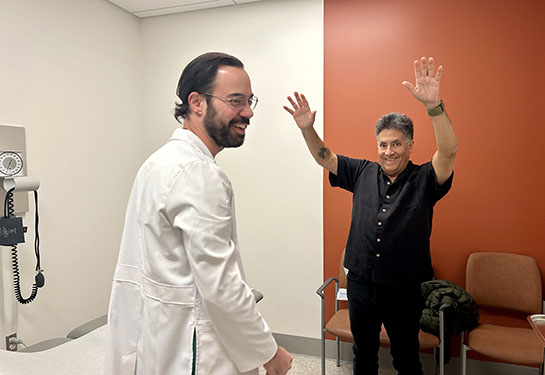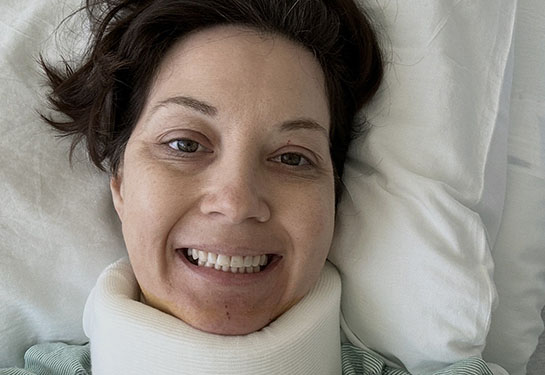Lifestyle changes boost brain health
UC Davis contributes to nationwide study showing structured interventions improve cognition in older adults
Everyday lifestyle choices can protect brain health in older adults, according to new results from the U.S. POINTER Study, a two-year clinical trial led by the Alzheimer’s Association. UC Davis Health was one of several academic health systems that participated in the nationwide research effort.
“The U.S. POINTER results are powerful because they show that healthy choices really can protect the brain. What matters most in practice is making these programs accessible, adaptable and personal,” said Rebecca Boxer, chief, Division of Geriatrics, Hospice and Palliative Medicine, when reflecting on the findings.
UC Davis contribution
At UC Davis Health, the study was directed by Rachel Whitmer, professor of public health sciences and neurology and chief of the Division of Epidemiology. Whitmer also co-authored the paper, “Structured vs Self-Guided Multidomain Lifestyle Interventions for Global Cognitive Function,” published in the Journal of the American Medical Association (JAMA).
“U.S. POINTER is important because it was designed as a rigorous, randomized controlled clinical trial to demonstrate whether an accessible and sustainable lifestyle intervention protects cognitive function in diverse populations in communities across the United States,” said Whitmer, who also serves as co-director of the Alzheimer’s Disease Research Center at UC Davis. “These positive results underscore the message that healthy behavior has a powerful impact on brain health.”
What the study found
U.S. POINTER compared two interventions — one structured, one self-guided — that included physical activity, nutrition, heart health monitoring, and cognitive and social engagement. Both groups saw improvements in cognition, with greater benefits observed in the structured program. Results held across age, sex, ethnicity, cardiovascular health and genetic risk factors such as APOE e4 (a gene that plays a role in how the body transports cholesterol and other fat).
- Structured lifestyle intervention. Participants attended 38 facilitated peer team meetings over two years. They were provided with a prescribed activity program with measurable goals for:
- Aerobic, resistance and stretching exercise.
- Adherence to the MIND diet, a combination of the Mediterranean diet with the salt restrictions of the DASH diet.
- Cognitive challenge through BrainHQ training and other intellectual and social activities.
- Regular review of health metrics and goal setting with a study clinician.
- Self-guided lifestyle intervention. Participants attended six peer team meetings to encourage self-selected lifestyle changes that best fit their needs and schedules. Study staff provided general encouragement without goal-directed coaching.
UC Davis Neurology professor Sarah Tomaszewski Farias, who served as co-principal investigator for the local site, underscored the importance of the recruitment approach.
“A unique and important aspect of the trial was the grassroots recruitment efforts that were made. This helps to ensure our findings are generalizable, particularly to those at highest risk for developing dementia,” she said.
“The framework works broadly. But tailoring, whether for mobility limits, cultural needs or life stage, makes these interventions sustainable,” Boxer added.
Why it matters
The findings confirm that lifestyle changes, when supported through structured programs, can help protect brain health for at least two years. Study leaders say these are initial results and additional analyses will provide a fuller picture of the impact on long-term health and daily functioning.
“Next steps could also be to look beyond cognition — does the intervention help people stay independent, reduce falls, improve mood, and/or need fewer medications? These are also important outcomes that improve quality of life for aging adults,” added Boxer.




